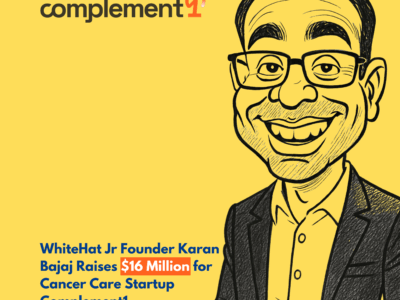 So, invariably, the question (or should I say, THE question) comes up every time we speak of Kymaia’s homeschooling: ‘But, what about friends and social skills? Won’t she miss out on all this if she does not attend regular school?’
So, invariably, the question (or should I say, THE question) comes up every time we speak of Kymaia’s homeschooling: ‘But, what about friends and social skills? Won’t she miss out on all this if she does not attend regular school?’
I thought I’d write a definitive answer to this and settle it once and for all.
So, here goes: She has dozens of friends and cousins who she meets regularly (every day to play, some weekends for sleepovers, joint outings & picnics, and being invited to and inviting them to birthday and other parties). Indeed, as of now, she has more friends than I have had in school (not that I was a very friendly chap, but still).
However, this question did come to us early on (and as I mentioned, continues to come to us from various quarters, all of who are well-intentioned well-wishers of ours and Kymaia’s) and there are two answers to it.
1. If she were to go to a school from the first to her final year (unlike me, who changed schools with my father’s postings every year or two), she’d still make no more than a handful of friends. Most of these would be of her age group, in her class, from similar socio-economic backgrounds, learning the exact same things and nothing more. So, not only the QUANTITY of her friends would be limited, it is my contention that the QUALITY would be too. This is debatable, but if one can define something like quality at all in terms of diversity of backgrounds, experiences, and shared life, I think her homeschooling experience comes closer in terms of higher quality of relationships than her regular school would have. In her current schedule, she gets to run 5-10km with a retired Maj Gen at dawn, learn chess from a player who is active in the international circuit and play a game with a Singaporean or Australian in the morning, practice piano with an accomplished teacher and performer and attend (and participate in) concerts along with other children who are at her stage of learning the piano rather than just age, learn Mandarin and ISL (ISL is a group class, so she has classmates, again from diverse backgrounds), and interact with and meet so many more people than if she’d just gone to school. She also goes to the garden downstairs for free play from 1700 to 1900h everyday, where she meets some out of the 49 children we have in our housing society. Also, she has 3 or 4 BFFs (or were there 5?), 1 really close cousin her age (and gender), 3 cousins 3-4 years her junior, and a host of other friends and playmates in and around the area, some from her parents’ friends’ circle, some from her old school, some from the housing society, some from her cousins’ housing societies, and so on. I think there would be little to no difference between if she were to attend a regular school or not (as she does now).
Of course, all this, in terms of how many friends she could potentially have had in school vis-a-vis what she has now, how many will keep coming in and out of her life, how many will be long-lasting dear friends in her adulthood, how many will even remain friends, and whether the quantity v/s quality debate is even worth having, are questions open for debate, and interpretation. Yours may differ from mine based on our own anecdotal evidence and perhaps even some scientific studies that may have tracked school friends as compared to non-school friends to come to some sort of conclusion or the other. Which brings me to the next point.
2. There is no perfect system. There will be pros and cons in everything. There will be advantages and disadvantages. Benefits and losses. We, as parents, have to weigh all of them, or at least the known ones, on our own mental weighing scale, to decide which one we choose. Bob Marley is known to have famously said, ‘The truth is, everyone is going to hurt you. You just got to find the ones worth suffering for.’ So, regardless of which option we go for, regular schooling or homeschooling, there would be something we’d gain, and something we’d have to let go of. It was up to us, when we were deliberating on this (basically, when I was fighting with my back to the wall with the entire family arrayed against me. LOL.) to silently keep score of the pluses and minuses and see whether the possibility of us (mainly Kymaia, but her parents too) coming out of this with a net positive outweighs us being saddled with a net negative. And we took the call for forsaking the potential friendships a school may build for the benefits of long-term happiness of our child, while still keeping as many options open and opening up as many opportunities as possible for her to build as many friendships and relationships as possible, given the limitations within which we chose to operate.
That said, let us look at the end result, for which we must ask a simple question: Is Kymaia a happy child who can make friends and deal with breakups, who can share and resolve disputes between her and her friends & relatives, who can and does have a healthy relationship with relationships (not that I’d know anything about that, given my own abysmal track record, but let us not go there right now)? As long as the answer to that question is a resounding ‘Yes’, I think we can all rest assured that whatever it is that she is doing (and we are getting her to do) is more or less heading in the direction it was meant to, and that if we find that it is not, well, she’s just 7; we have enough time to correct it and if really really necessary, put her back into the formal education system in the next few years (personally, I see no such eventuality, but one must be prepared for everything, right?).
So, in summary: Firstly, I find no evidence to support the claim that school-based friendships are of any higher quality than non-school-based ones, nor do I think you make more number of close friends in school than any other place; and secondly, even if that were the case, there are other benefits Kymaia gains which outweigh whatever potential benefits the school-going friendships may have provided, or at least that is the basis on which we, her parents, took the call to drop formal schooling.
And to conclude: We have, like all parents, taken several decisions on Kymaia’s behalf for her present (and some for her future). After all of these, we have ended up with what is prima facie a happy, well-adjusted child. And until that changes, we see little reason to fix what ain’t broken, especially when we find that we are in the process of fixing what really is!


















